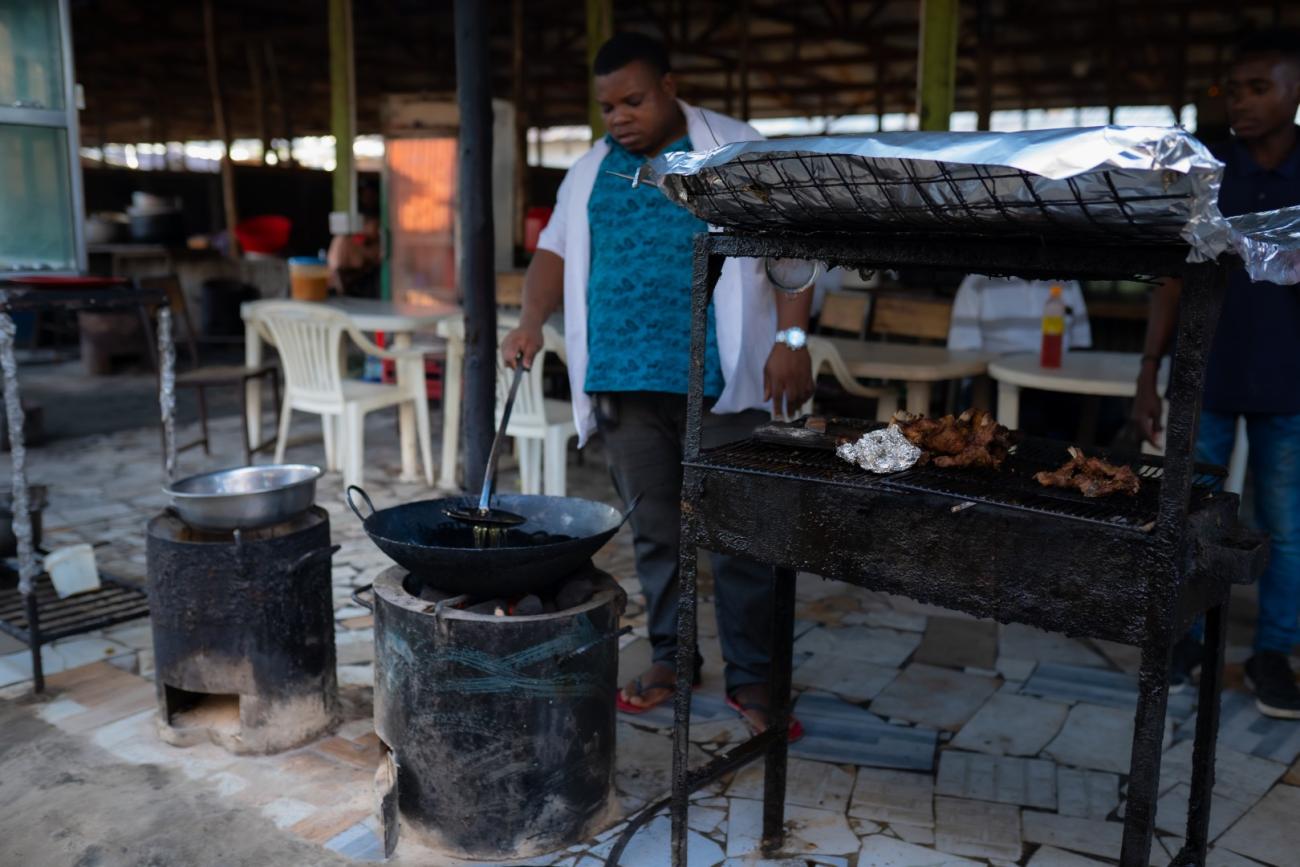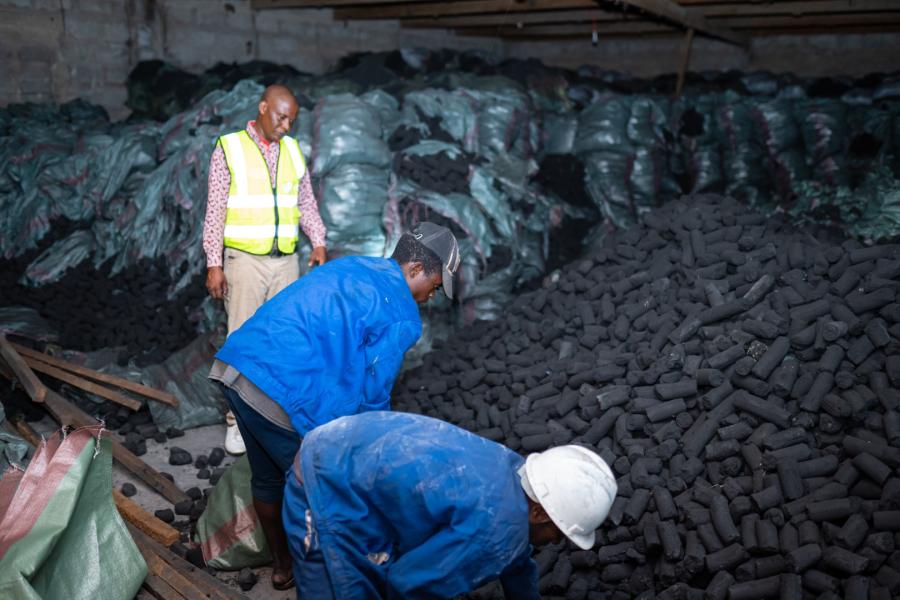Investing in green charcoal: A Practical Solution for Cleaner Cooking

Tanzania is a country where the use of traditional wood charcoal and firewood has long been ingrained in cultural practices.
Data from the Tanzania Forestry Agency (TFS) shows that Dar es Salaam residents use over 500,000 bags of charcoal per month while Mwanza and Arusha use up to 200,000 bags. The good news is that there is a push for a migration from traditional wood charcoal and firewood to the use of briquettes, an eco-friendly alternative that promises not only efficient cooking but also a healthier environment.
Leonard Gabriel Kushoka, Director of Kuja-na-kushoka Tools and Manufacturers, echoes the sentiments of many driving this transformation. His journey into the briquette business began out of a desire to offer an alternative to traditional charcoal driven by concerns about the destructive impact of charcoal production on the environment. Starting as a mechanical workshop tool manufacturer, he ventured into briquette production in 2016, leveraging his mechanical experience to create briquette-making machines and even winning recognition in the Alternative Charcoal Energy Technology Competition in 2018.
Abdulkher Mohamed, the Director of Alladin Limited Company, offers a unique perspective from the sales side of the briquette industry. Specializing in the production and sale of briquettes made from materials such as sawdust, coconut shells, rice husks and others. His journey began with learning about the briquette business in Nairobi, Kenya and further education from the Tanzania Industrial Research and Development Organization (TIRDO). Established in 2019, his company primarily markets its products in the commercial city of Dar-es-Salaam and the nation’s capital city Dodoma. He distributes to other regions in Tanzania through individual buyers.
Benefits of briquettes
One of the primary advantages of briquettes is their ability to offer cleaner energy while using fewer raw materials compared to traditional charcoal. This reduction in material usage not only makes the shift from charcoal usage easier but also proves beneficial in urban areas where charcoal may be pricier due to transportation costs and scarcity.
Kushoka notes that urban areas, such as Dar-es-Salaam, demonstrate a better market for briquette-making machines due to their affordability and accessibility in contrast to the higher costs of traditional charcoal, driven by increased transportation costs and limited availability. This is especially true for business owners who rely on cooking as their source of income. He also believes that in rural parts of Tanzania, the abundance of trees poses a challenge to enforcing environmental laws so many people in those areas opt to use firewood.
The environmental benefits of briquettes also stand out because production is less harmful to the environment compared to the traditional charcoal production process.
Challenges and the path forward
The lack of widespread awareness about the benefits of briquettes impedes the migration process. Kushoka and his team have taken proactive steps to solve this by utilizing social media, exhibitions, and direct engagement with buyers to educate them on the benefits of this cleaner cooking solution. Mohamed expressed that though many of his customers are keen to try briquettes they are not repeat clients because of a lack of awareness.
The absence of substantial government support and minimal policy backing presents hurdles. Stringent regulations on briquette production increase operational costs and in turn the price of the product.
While there's advocacy for the shift to briquettes, the absence of direct government support hampers the migration progress. Government intervention would help increase the use of such products and reduce the preference for charcoal. In April 2023, the Government through the Office of the Vice President directed that all public and private institutions in Tanzania serving food to over 100 people per day should cease the use of firewood and charcoal by the end of January 2023, while those serving over 300 people have until the end of January 2025. Kushoka uses this directive to advertise his business. However, he says there has not been much follow-through since that announcement.
Additionally, Tanzania faces a technological gap in advanced machinery necessary for efficient briquette production, trailing behind neighbouring countries like Kenya. Furthermore, a lack of industry awareness complicates efforts to convince potential customers to embrace this cleaner cooking alternative.

A call for education and change:
Both Mohamed and Kushoka highlight that the deeply ingrained use of traditional charcoal within Tanzanian culture poses a significant challenge in the migration from charcoal to briquettes.
In the words of Kushoka, "Matumizi ya mkaa ni tamaduni, elimu inahitajika ili kuwatoa watu kwenye hiyo mindset." This insightful statement underscores the necessity for education to shift people’s mindsets away from traditional charcoal use towards adopting cleaner, sustainable alternatives.
The transition from traditional wood charcoal to greener briquettes holds promise for a cleaner and more sustainable future. It is a journey filled with challenges, yet it’s a path that promises a healthier environment, reduced ecological impact, and improved well-being for individuals. As awareness spreads and support grows, the potential for a shift towards briquettes as a practical solution for cleaner cooking becomes more evident.



